After careful consideration I have decided to transfer all hardware review activities to a new domain. I purchased Hardwareasylum.com in 2012 and have been working hard to build a new and improved Ninjalane on that domain. If you are reading this you have reached one of the archived articles, news, projects and/or reviews that were left behind during the site migration.
Please update your bookmarks and be sure to visit the new and improved Ninjalane at Hardwareasylum.com
OCZ Reaper Triple Channel PC3 15000 6GB Memory Review
Author: Will West
Published: Wednesday, February 03, 2010
Benchmarks - Overclocked
Overclocking is one of the few ways to really extract the most performance from a system but only to a certain level, after of which the law of diminishing returns takes over.
As with all of our reviews we pit the default speed system against the overclocked one in a head to head byte match. The results of our tests are below.
As with all of our reviews we pit the default speed system against the overclocked one in a head to head byte match. The results of our tests are below.
CPU-Z 1946MHz
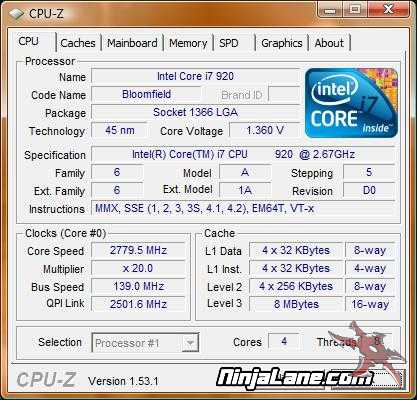
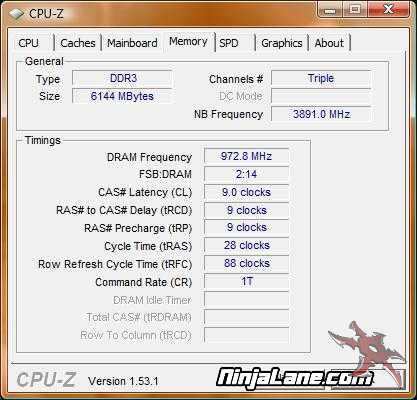
For our overclocking test we wanted to push the RAM beyond the established 1866Mhz speed rating and see how much headroom we really have.
The OCZ Reapers did not respond well to timing changes and resulted in nothing more than a ton of instability. Because of this our overclocking efforts were concentrated on memory clock speed.
The effective overclock here is 1946Mhz.
The OCZ Reapers did not respond well to timing changes and resulted in nothing more than a ton of instability. Because of this our overclocking efforts were concentrated on memory clock speed.
The effective overclock here is 1946Mhz.
SiSoft Sandra Various Overclocks
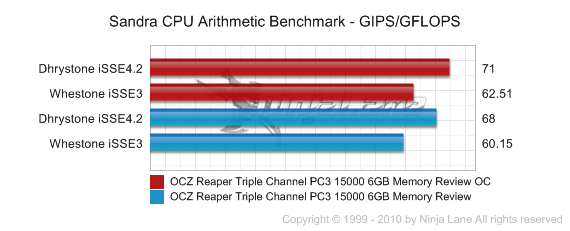
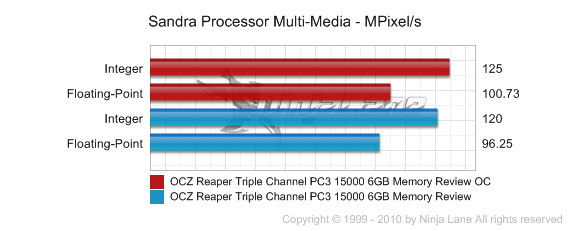
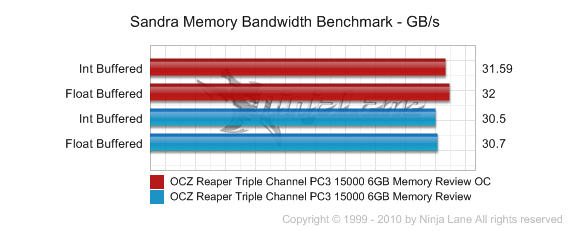
Quake 4

Overclocked Conclusion
So the added 80MHz was relatively easy to achieve, but we did have to go over the 1.65volt recommendation for the Core i7 processor. To make this happen we set the memory voltage at 1.75volts and pushed the VTT up to 1.4volts. This is not something most people are willing to risk, especially for such a small overclock.
Still, we got good results using the stock SPD timings of 9-9-9-28-1T, which is not bad considering there are some modules out there that cannot run 1866MHz with a 1T command rate.
The little bit of headroom in these modules does translate into some performance increases. For instance, in our real world benchmark the net result was a 7 FPS jump in speed. This might not seem like much but to the benchmark junky those extra frames are a pretty big deal.
Still, we got good results using the stock SPD timings of 9-9-9-28-1T, which is not bad considering there are some modules out there that cannot run 1866MHz with a 1T command rate.
The little bit of headroom in these modules does translate into some performance increases. For instance, in our real world benchmark the net result was a 7 FPS jump in speed. This might not seem like much but to the benchmark junky those extra frames are a pretty big deal.

